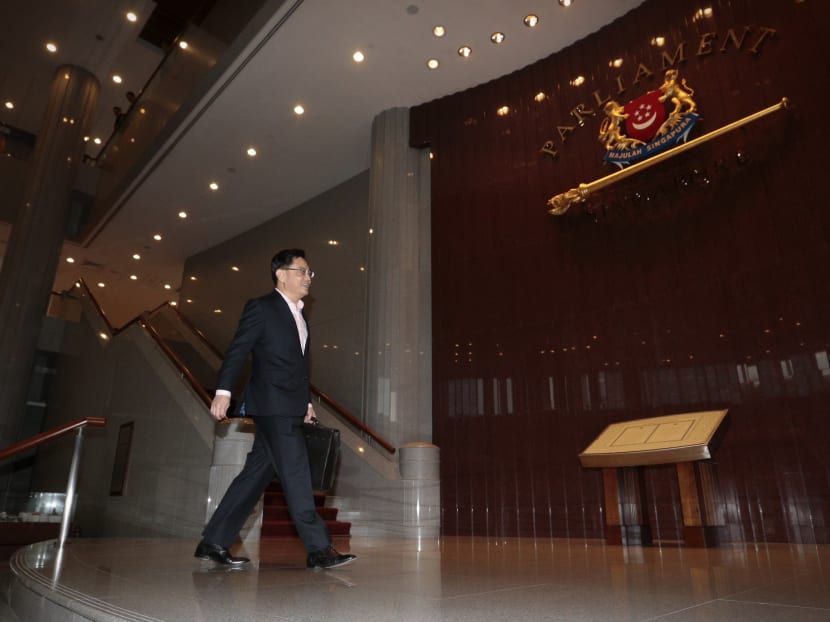Budget surplus expected, despite higher expenditure
SINGAPORE — After registering a deficit for two straight years — albeit of a smaller magnitude than initially projected — the Government expects an overall budget surplus of S$3.45 billion for FY2016, not least because of a jump in the Net Investment Returns Contribution (NIRC), which will incorporate profits made by Temasek Holdings for the first time.
SINGAPORE — After registering a deficit for two straight years — albeit of a smaller magnitude than initially projected — the Government expects an overall budget surplus of S$3.45 billion for FY2016, not least because of a jump in the Net Investment Returns Contribution (NIRC), which will incorporate profits made by Temasek Holdings for the first time.
Still, with expenditures likely to grow faster than revenues, Singapore will find itself in a “more challenging” and tighter fiscal position in the long term, said Finance Minister Heng Swee Keat in Parliament on Thursday (March 24).
Expenditures budgeted for FY2016 are expected to hit S$73.4 billion, up by S$5 billion, or 7.3 per cent. Revenue, in comparison, is expected to increase by 6.7 per cent to come in at S$68.44 billion.
Without the projected S$14.7 billion in NIRC (up from S$9.9 billion) and the S$3.6 billion in top-ups to endowment funds and trust funds, the Government would have registered a basic deficit of S$7.66 billion, which is slightly lower than the S$8.78 billion for FY2015.
Although tax revenue makes up around 90 per cent of the Government’s operating revenue, the inclusion of Temasek Holdings into the NIR framework provides a further boost, said Mr Heng.
For the coming financial year, contributions from statutory boards, motor vehicle-related revenues and personal income tax were cited as the main drivers of the revenue jump, which Mr Heng noted were “one-off” boosts.
According to the Budget Book, which lists government revenue and expenditure in the past year as well as the estimates for the year ahead, statutory boards are projected to bring in 333 per cent more revenue (S$1.88 billion), mainly from the Monetary Authority of Singapore (MAS).
In response to queries, an MAS spokesperson said: “As in previous years, MAS’ estimated net profits are largely contributed by interest income from our investments and realised capital gains/losses from the sale of official foreign reserves assets plus translation effects.” MAS traditionally releases its annual report in July.
Motor vehicle taxes are expected to add S$2.93 billion to the Government’s coffers in FY2016, a 63.3 per cent increase. Receipts from vehicle quota premiums are projected at S$5.65 billion, an increase of S$0.25 billion from FY2015. But vehicle-related revenues are expected to decline after the next one to two years, in line with a fall in registration numbers.
Personal income taxes are estimated at S$10.13 billion, an increase of S$1 billion, or 10.9 per cent.
In the long term, healthcare expenditures, in particular, are expected to grow, said Mr Heng, while GDP growth will slow as the economy and workforce mature.
The Government will review the major expenditure items it expects ahead, to ensure efficiency and effectiveness, said the minister, and will adjust as economic conditions turn.
“As we spend more, we must also spend right ... We must spend only when it is needed and where it best achieves our social and economic objectives,” said Mr Heng.
For the first year of this Government’s term, the Defence, Education and Health ministries will get the highest budgets.
The Ministry of Health, for instance, will get S$11 billion, a 19 per cent increase. Besides paying for an anticipated increase in patient subsidies in line with an expected increase in demand for health and aged care services, as well as subsidies for MediShield Life premiums, the money will go towards building several major healthcare institutions, such as Sengkang General Hospital and the National Centre for Infectious Disease.
In FY2015, the Republic recorded a smaller-than-expected deficit of S$4.88 billion, partly because of jumps in corporate taxes (S$13.85 billion; or 2.7 per cent over estimates) and personal income taxes (S$9.13 billion; or 2.5 per cent higher). The initial estimate was an overall deficit of S$6.7 billion, or 1.7 per cent of gross domestic product.







